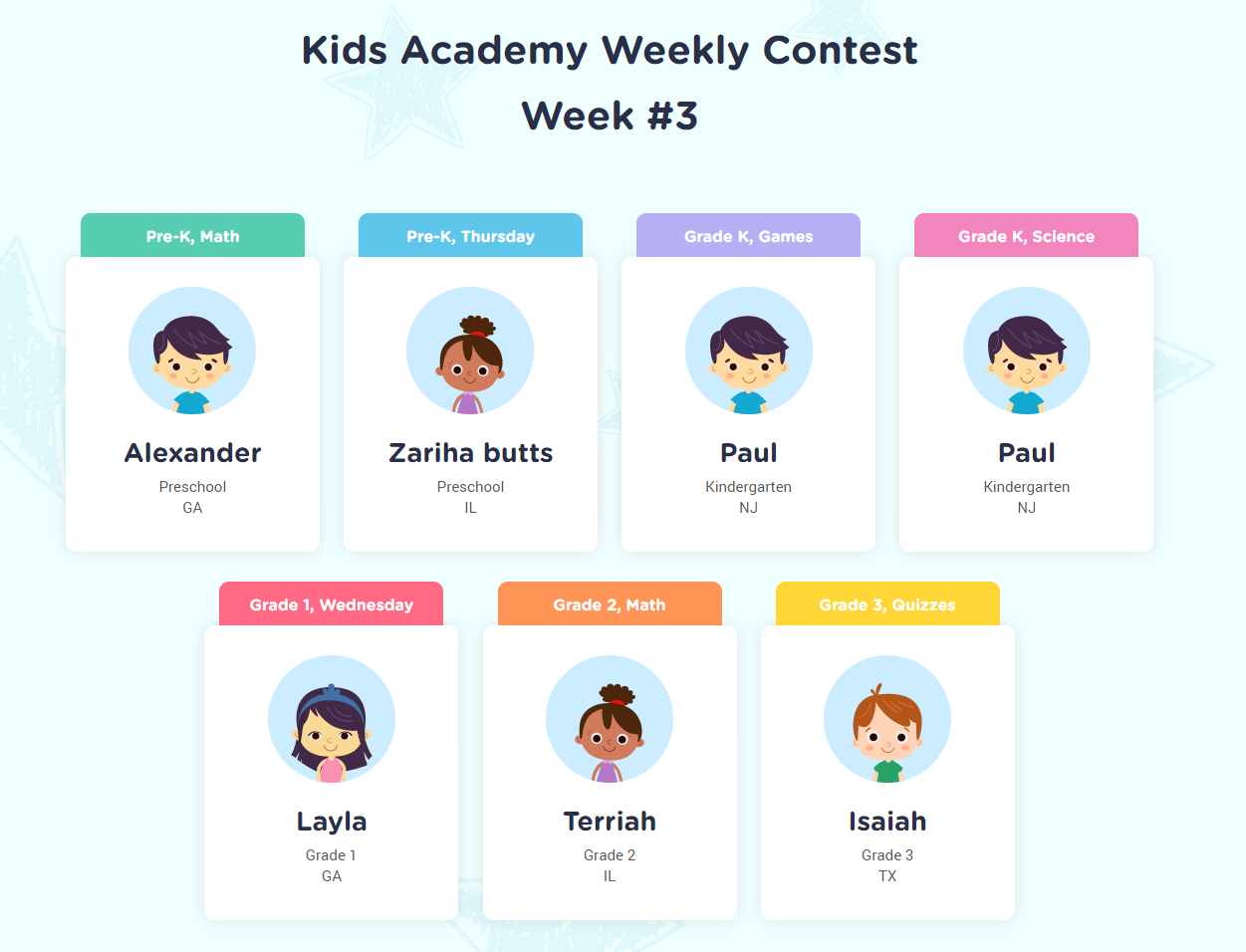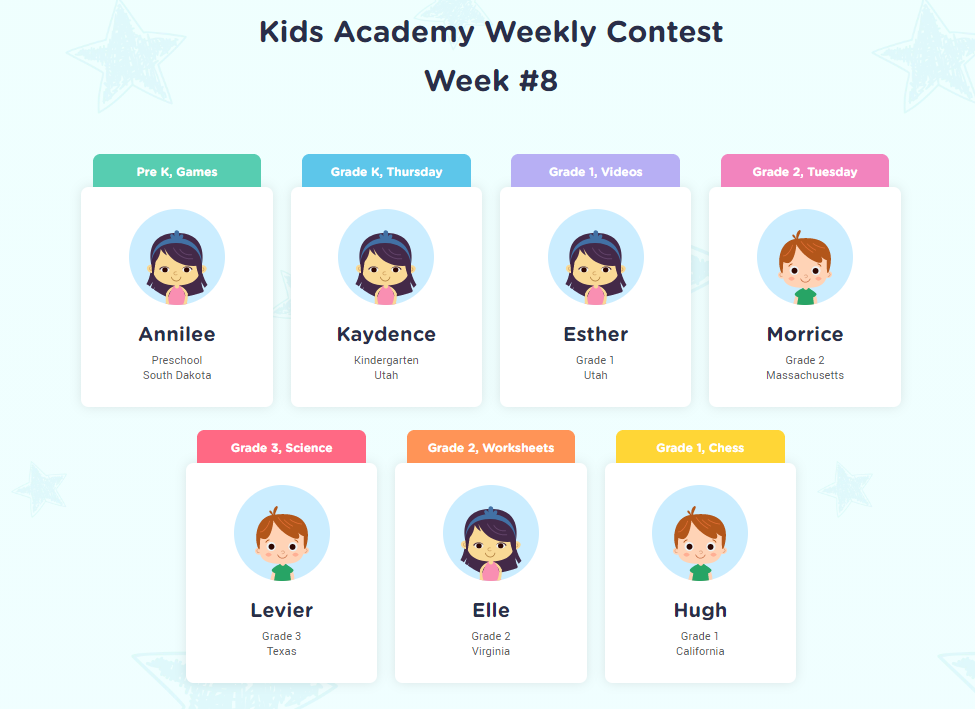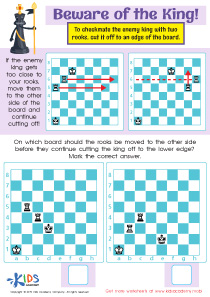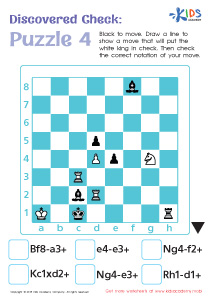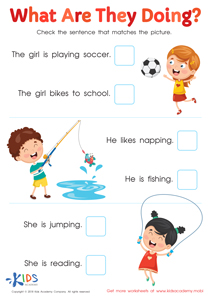Problem-Solving Skills Easy Grade 1 Chess Worksheets
4 filtered results
-
From - To
Enhance your child's problem-solving skills with our Easy Grade 1 Chess Worksheets! Designed specifically for young learners, these engaging worksheets introduce basic chess concepts while promoting critical thinking and strategy development. As students navigate fun puzzles and scenarios, they’ll learn to analyze situations, anticipate moves, and make decisions—key components of effective problem-solving. Our user-friendly format ensures that learning through chess is both enjoyable and educational. Perfect for at-home practice or classroom activities, these worksheets are valuable resources for fostering confidence and cognitive growth in first graders. Explore our collection and help your child become a budding chess strategist today!
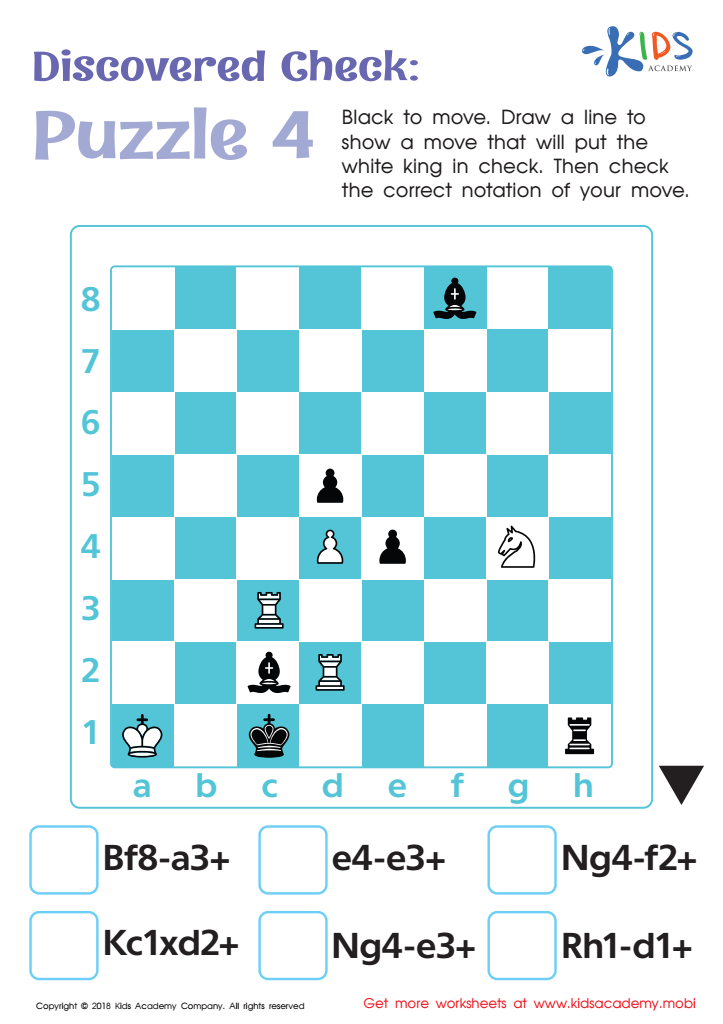

Discovered Check: Puzzle 4 Worksheet


Discovered Check: Puzzle 2 Worksheet
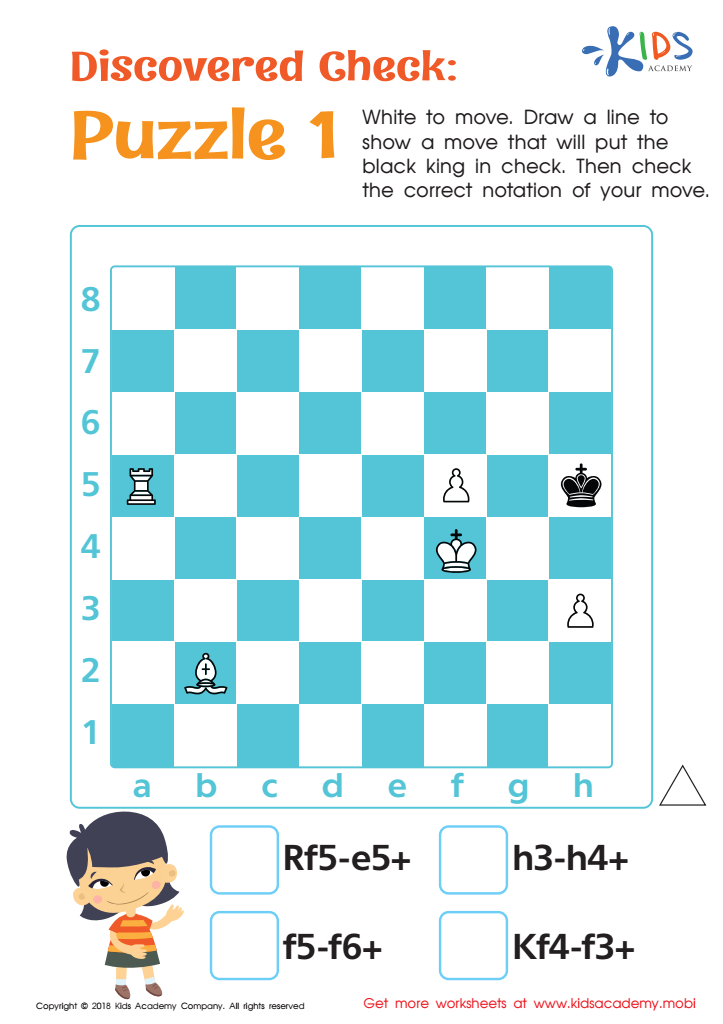

Discovered Check: Puzzle 1 Worksheet
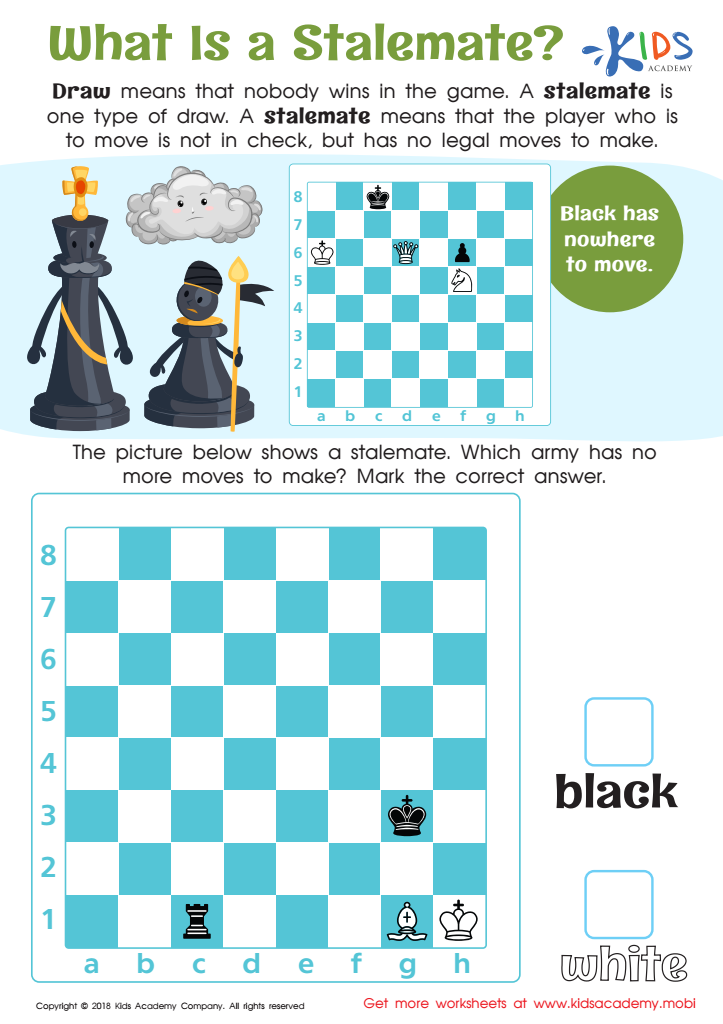

What Is a Stalemate? Worksheet
Problem-solving skills are crucial for young learners, and introducing them through activities like chess can be particularly beneficial. For parents and teachers, fostering these skills in children as early as Grade 1 is vital for their cognitive and emotional development. Chess, a strategic game, encourages players to think critically and make decisions based on possibilities and consequences. When children engage in chess, they learn to analyze situations, recognize patterns, and develop strategies to overcome challenges. These skills are transferable to academic subjects and real-life scenarios.
Moreover, chess promotes patience and perseverance. Players often face difficult situations requiring multiple attempts to solve problems, teaching resilience and important life skills. For educators, incorporating chess into the curriculum can enhance students’ focus and attention to detail, ultimately improving overall academic performance.
Additionally, chess cultivates social skills. Playing with peers fosters teamwork, communication, and respect for others, making it a holistic approach to education. By supporting activities that enhance problem-solving skills through fun games like chess, parents and teachers can empower children to think critically, enhancing their future success in school and beyond. Early exposure to such skills sets a strong foundation for lifelong learning and adaptability.

 Assign to My Students
Assign to My Students





